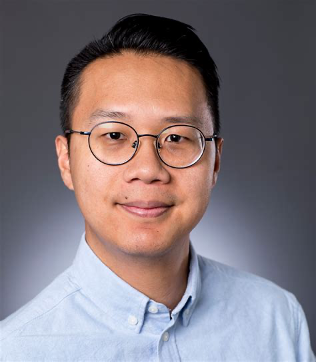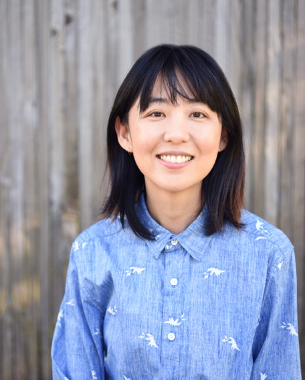While there are many fantastic Taiwan Studies research centers, programs, and initiatives all around the world, being able to provide graduate degree-level qualifications that have a focus on Taiwan is a huge challenge. As the University of Washington inaugurates their new MA East Asia Studies with a special Taiwan track, becoming the first University in north America to offer this, we spoke to Prof. James Lin and Ellen Chang to understand more about UW’s Taiwan Studies Program and how they have built to the point of being able to offer this new degree path.
1. When did the University of Washington’s Taiwan Studies Program begin and what was the original vision?
James Lin: The program was formally established in January 2018, but it began even earlier as a “Taiwan Studies Initiative” started by my UW colleagues, Bill Lavely (who later became the Taiwan Studies Program chair), Madeleine Dong, and David Bachman. The three of them recognized that UW has had a historic strength in Taiwan studies, from scholars (now all retired) such as Steve Harrell (anthropology), Gary Hamilton (sociology), and Jeff Hou (landscape architecture). They applied for funding from the Taiwan government and also received a substantial donation from a private donor, which then established the program and allowed for the university to hire me.
2. Have you found interest in Taiwan has grown among your student population over the past few years/decade?
James Lin: Yes, especially in the past 5 years or so. I find many of my undergraduate students are interested in Taiwan’s international relations and as a potential flashpoint for geopolitical conflict. And in the past couple years, a new interest in Taiwan’s economy, especially in semiconductors. There have also been students interested in Taiwan’s culture, gender rights movement, and Indigenous peoples.
3. You are launching a Taiwan track as part of the East Asia MA, a really significant achievement which makes UW the first University in north America to offer a Taiwan-focussed graduate degree program. Can you describe how you managed to get to this point? What were some of the key steps towards this goal?
James Lin: We’re extremely excited about the Taiwan track that we are establishing for the new East Asia MA program. The curriculum in essence works like a Taiwan degree since it will require Taiwan-centric courses as core and elective courses, though in name it will still officially be an East Asia MA with a Taiwan track. We are very proud of this achievement because it has been a long term goal of our program since its inception. To achieve a new degree program, we had to demonstrate that we could have a rigorous curriculum in Taiwan Studies for graduate students, so that has been one of our curricular goals since 2018. My graduate seminar, “Making Modern Taiwan,” and the enrolments it garnered, became important for making the case that Taiwan Studies was both in demand and engaging for students. Getting this approved was a long process overseen by my colleague Bill Lavely, but now that is has happened, we are eagerly anticipating welcoming the first new cohort of students in Fall 2025.
4. How do you anticipate this new Taiwan track for the East Asia MA will impact on the wider Taiwan Studies Program?
James Lin: One of our major goals of establishing an MA program was to help build the field of Taiwan Studies. There is no MA program in Taiwan Studies in North America. This is an important gap to fill because many students entering MA programs want to focus on Taiwan for future careers in government, think tanks, NGOs, foreign service, and academia. A Taiwan-track degree offers that opportunity to focus on in-depth area and language expertise specific to Taiwan. Furthermore, we also hope to attract students from Taiwan who are especially looking to enter academia in the US to work on Taiwan. An MA program can help Taiwanese undergraduate students become accustomed to academic research and writing in North American universities and prepare them for disciplinary PhD programs.
5. How important has international academic collaboration been for the UW Taiwan Studies Program? Are there specific examples of collaborations with other universities or organisations that have enhanced what you do?
James Lin: We have had the pleasure of collaborating with a number of Taiwan Studies institutions internationally in the past. In 2022, we were very proud to be the first North American host of the World Congress of Taiwan Studies, which we organized with Academia Sinica. We organized medium sized conferences, such as “Pioneering Taiwan Studies” held earlier this year (2025), with the University of Central Lancashire, and the in the summer of 2024, we held the conference, “Taiwan in Transition,” with the University of Nottingham. In the US, we have hosted the North American Taiwan Studies Association annual meeting, and also organized joint book and research talks for guest speakers with Taiwan Studies Centers at UCLA, UCSD, University of St. Thomas, and UT Austin.
6. Can you describe some of the achievements that you are most proud of at UW?
James Lin: The MA program is certainly a crowning achievement, not least because it was not an easy goal to reach, so we are really looking forward to the ways in which this achievement brings a whole new impetus to our program. Aside from that, our University of Washington Press series, Taiwan and the World, is something we are proud to have launched. There are already three books published, with a stream of exciting books on the way, including Lev Nachman’s ‘Contested Taiwan.’ Finally, a whole other area of our Taiwan Studies Program is the Taiwan Studies Arts & Culture Program that is directed by Ellen Chang, which is such a significant part of our Program that I will allow her to give a more thorough introduction herself.
Ellen Chang: The Taiwan Studies Arts & Culture Program is a key and unique part of the Taiwan Studies Program. Each year, we organize a range of events that combine academic discourse with the arts, including performances, exhibitions, lectures, and screenings. On average, we host one major month-long serial program and six standalone events annually, engaging both the university community and the wider public. The fact that many of these events are held in collaboration with other partners means we can work at a larger scale than we could do on our own, bringing in resources that both students and the public would find hard to access otherwise. The events have been particularly valuable for students, giving them the chance to meet and interact with practitioners that they are often learning about or even researching as part of their studies.
Some examples of our serial programs are:
April 2025 – 228: From Atrocity to Transitional Justice in Taiwan, co-presented with the 228 Memorial Foundation (Taiwan) and the Taiwan Film and Audiovisual Institute.
Spring 2024 – Music, Island, Stories: Taiwan Calling! In partnership with the Taipei Music Center.
Fall 2023 – Kuroshio Odyssey: Maritime Memories, Culture, and Landscapes with the Burke Museum and various Taiwanese Indigenous Peoples organizations.
Spring 2023 – Remembering Hu Tai-Li: Memorial Lecture, Screening, and Workshops with the Burke Museum and DER Documentary Educational Resources.
Fall of 2022 – Whispers of Trees: Visual Soundscapes of Taiwan with the National Kaohsiung Center for the Arts (Weiwuying, Taiwan).
Spring 2022 – Taiwan Film Series: Political Violence, Historical Trauma with the Taiwan Film and Audiovisual Institute and the Faculty of Asian and Middle Eastern Studies at Cambridge.
In addition to these international partnerships, we also collaborate with local organizations and overseas Taiwanese groups to further enrich the cultural exchange. Our collaborations with community-based institutions and Taiwanese organizations abroad help us create a broader network that bridges Taiwan’s cultural heritage with global conversations. These partnerships enable us to engage local audiences while fostering stronger ties with Taiwan’s diverse cultural and artistic communities.
7. What advice would you give to other Taiwan Studies Centres or Programs around the world?
James Lin: Building a Taiwan Studies Program is extraordinarily challenging. Sometimes even raising enough funds to run basic programming feels like a Sisyphean task. That said, I’ve lost count of students, scholars, and community members who have offered their appreciation for what our program does and for giving a space for studying Taiwan, and I feel that makes it worth it.

